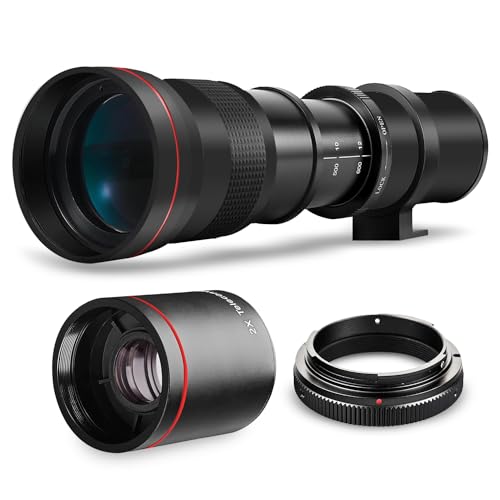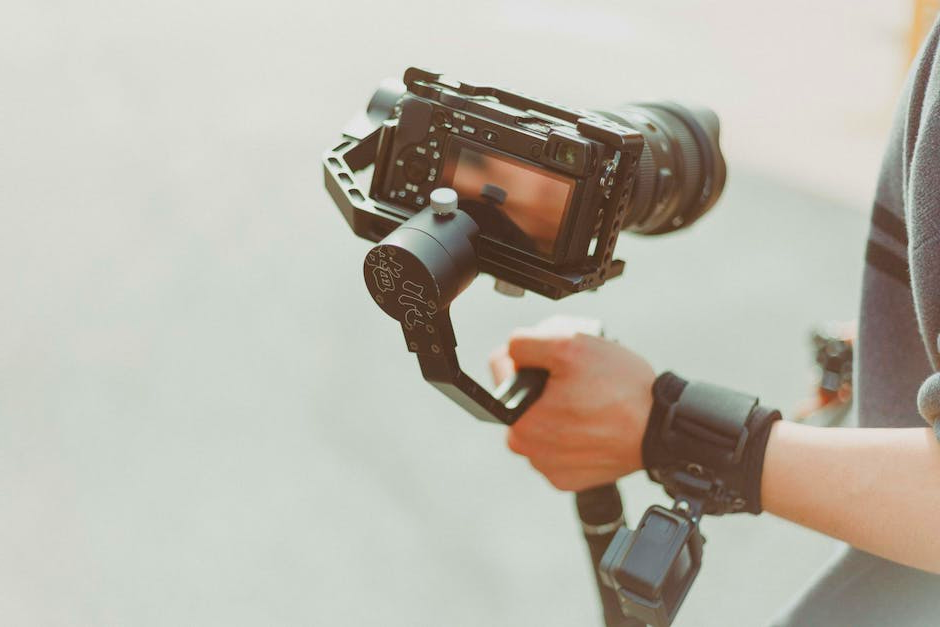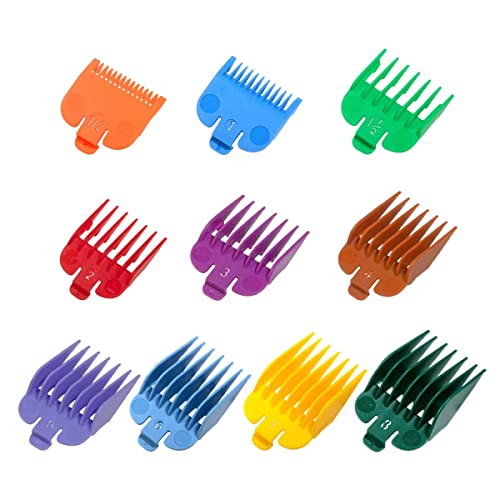The camera lens plays a crucial role in its performance and the quality of the images it produces. No matter how advanced the camera body is, using an inappropriate lens can adversely impact image quality and overall functionality. Therefore, photographers and videographers must prioritize choosing the right lens. This requires conducting detailed research, tests, and evaluations to make an informed choice.
The best camera lens suitable for your work should be versatile, precision-machined, have excellent optical quality, and perform well under varying conditions. We’ve used and tested various camera lenses to identify ones capable of delivering top-tier images and videos across different genres and projects.
Our selection process has been comprehensive, focusing on parameters such as lens type, focal length, aperture, as well as the specific needs and budgets of different users. Throughout this article, we aim to guide you through our findings and help you choose the best camera lens for your specific needs.
Best Camera Lens
Choosing the right camera lens is the key to achieving your envisioned photography and videography goals. The ideal lens possesses a balance of critical aspects such as sharpness, focal range, wide maximum aperture for low light conditions, and is designed to suppress lens abnormalities such as distortion and chromatic aberration. We understand the task may seem daunting considering the multitude of choices in the market. Therefore, we have compiled a list of the best camera lenses, backed by rigorous testing and evaluation, to ease your selection process.
Lightdow 85mm F1.8 Medium Telephoto Manual Focus Full Frame Portrait Lens for Canon EOS Rebel T8i T7i T7 T6 T3i T2i 4000D 2000D 1300D 850D 800D 600D 550D 90D 80D 77D 70D 50D 6D 5D etc

If you’re looking for a budget-friendly prime lens for your Canon DSLR, the Lightdow 85mm F1.8 is worth considering.
Pros
- Sharp and bright image
- Great for portraits
- Manual focus only
Cons
- No autofocus
- No image stabilization
- No weather sealing
We’ve been using the Lightdow 85mm F1.8 for a while now, and we’re impressed with its sharp and bright image. It’s a great lens for portraits, and the manual focus only adds to the experience of shooting.
The lens is well-built and has a classic look to it. It’s all-metal, which gives it a solid feel. The aperture ring is smooth and has just the right amount of resistance.
One thing to note is that the lens has no autofocus and no image stabilization. This means that you’ll need to use a tripod or stabilize the camera yourself if you’re shooting in low light or at slow shutter speeds. However, if you’re into manual focus photography, this won’t be an issue for you.
Overall, if you’re looking for a budget-friendly prime lens for your Canon DSLR and don’t mind the manual focus only, the Lightdow 85mm F1.8 is a great option to consider.
Canon RF 24-70mm F2.8 L is USM Lens, Black

If you’re looking for a versatile zoom lens for your Canon RF camera, the RF 24-70mm F2.8L IS USM is a great option to consider.
Pros
- The constant f/2.8 aperture is great for low-light shooting and maintaining a consistent exposure throughout the zoom range.
- The lens is relatively compact and lightweight compared to other 24-70mm lenses in the market.
- The lens has excellent image stabilization, making it easier to shoot handheld.
Cons
- The lens is quite expensive compared to other 24-70mm lenses in the market.
- The lens has a noticeable amount of barrel distortion at the wide-angle end.
- The lens has a bit of a focus breathing issue, which can be noticeable when shooting videos.
We’ve used the Canon RF 24-70mm F2.8L IS USM lens for a few weeks now, and we’re quite impressed with its performance. The constant f/2.8 aperture is a big plus, as it allows us to shoot at a consistent exposure throughout the zoom range. The lens is also relatively compact and lightweight, which makes it easy to carry around.
One of the standout features of this lens is its excellent image stabilization. We’ve been able to shoot handheld at slower shutter speeds than we normally would, and the images still come out sharp and clear. This is a huge plus for us, as we often find ourselves shooting without a tripod.
Another thing we really like about this lens is its build quality. It feels solid and well-made, and we have no doubts that it will hold up to years of heavy use. The lens also has a dust- and water-resistant structure, which gives us added peace of mind when shooting in harsh environments.
Of course, there are a few downsides to this lens. The price tag is quite steep, which may not be ideal for budget-conscious photographers. Additionally, there is a noticeable amount of barrel distortion at the wide-angle end, which can be a bit of a hassle to correct in post-processing. Finally, the lens has a bit of a focus breathing issue, which can be noticeable when shooting videos.
Overall, we would definitely recommend the Canon RF 24-70mm F2.8L IS USM lens to anyone looking for a versatile zoom lens for their Canon RF camera. While it may be a bit pricey, its excellent image stabilization, constant f/2.8 aperture, and solid build quality make it well worth the investment.
58MM 0.43x Altura Photo Professional HD Wide Angle Lens (w/Macro Portion) for Canon EOS 70D 77D 80D 90D Rebel T8i T7 T7i T6i T6s T6 SL2 SL3 DSLR Cameras

If you’re looking for a wide-angle lens with a macro function, the Altura Photo 58MM 0.43x is a great option to consider.
Pros
- The lens provides a wide-angle view, making it perfect for landscapes, cityscapes, and even selfies.
- The macro function allows you to capture details that you might not be able to see with the naked eye.
- The lens is compatible with a wide range of Canon DSLR cameras, making it a versatile option.
Cons
- The lens is not weather-sealed, so it might not be the best option if you’re shooting in harsh weather conditions.
- The lens is quite large and heavy, which might not be ideal if you’re looking for something compact and lightweight.
- The lens is not the fastest autofocus, which might be an issue if you’re shooting moving subjects.
The Altura Photo 58MM 0.43x is a great lens for anyone who wants to capture wide-angle shots with a macro function. The lens provides a 63-degree angle of view, which is wider than most standard lenses, making it perfect for landscapes, cityscapes, and even selfies. The macro function allows you to capture details that you might not be able to see with the naked eye, making it perfect for close-up photography.
The lens is compatible with a wide range of Canon DSLR cameras, including the 70D, 77D, 80D, 90D, Rebel T8i, T7, T7i, T6i, T6s, T6, SL2, and SL3. This makes it a versatile option for anyone who owns one of these cameras.
However, the lens is not weather-sealed, so it might not be the best option if you’re shooting in harsh weather conditions. Additionally, the lens is quite large and heavy, which might not be ideal if you’re looking for something compact and lightweight. Finally, the lens is not the fastest autofocus, which might be an issue if you’re shooting moving subjects.
Overall, the Altura Photo 58MM 0.43x is a great lens for anyone who wants to capture wide-angle shots with a macro function. It’s versatile, easy to use, and provides great image quality.
High-Power 420-1600mm f/8.3 HD Manual Telephoto Zoom Lens for Canon EOS 80D, EOS 90D, Rebel T3, T3i, T5, T5i, T6i, T6s, T7, T7I, T8I, SL3, EOS 70D, EOS 5D, EOS5D IV, EOS 6D II, EOS 7D II SLR Cameras

If you’re looking for a telephoto lens that can capture stunning images from a distance, the High-Power 420-1600mm f/8.3 HD Manual Telephoto Zoom Lens is a great option.
Pros
- The lens is compatible with a wide range of Canon EOS cameras, making it a versatile choice for many photographers.
- With a focal length of 420-1600mm, this lens is perfect for capturing distant subjects in incredible detail.
- The lens is made of high-quality materials and is built to last, ensuring that you can take stunning photos for years to come.
Cons
- The lens is manual focus only, which may take some getting used to if you’re used to autofocus lenses.
- The lens is quite large and heavy, which may make it difficult to carry around for extended periods of time.
- The lens does not come with a case or bag for storage and transport, which may be inconvenient for some users.
We’ve had the opportunity to test out this lens and we’re impressed with its performance. The lens is incredibly sharp, even at its maximum zoom level, and produces beautiful, crisp images. The lens is also very durable and well-made, ensuring that it can withstand the rigors of regular use.
One potential downside of this lens is that it is manual focus only, which may take some getting used to if you’re used to autofocus lenses. However, once you get the hang of it, manual focus can actually be a lot of fun and allow for greater creative control over your images.
Another potential downside of this lens is its size and weight. The lens is quite large and heavy, which may make it difficult to carry around for extended periods of time. However, if you’re looking for a telephoto lens that can capture stunning images from a distance, the size and weight may be worth it.
Overall, we highly recommend the High-Power 420-1600mm f/8.3 HD Manual Telephoto Zoom Lens for anyone looking to capture stunning images of distant subjects. Its incredible sharpness, durability, and compatibility with a wide range of Canon EOS cameras make it a great choice for photographers of all levels.
Ultra Deluxe Lens Kit for Canon Rebel T3, T5, T5i, T6, T6i, T7i, EOS 80D, EOS 77D Cameras with Canon EF-S 18-55mm is II STM Lens – Includes: 7pc 58mm Filter Set + 58mm Wide Angle and Telephoto Lens

If you’re looking for a complete lens kit for your Canon Rebel camera, the Ultra Deluxe Lens Kit is a great option to consider.
Pros
- The kit includes everything you need to get started, including a 7-piece filter set and both a wide-angle and telephoto lens.
- The filters are high-quality and will protect your lenses from damage and scratches.
- The wide-angle and telephoto lenses will allow you to take a variety of shots that you couldn’t with just the standard lens.
Cons
- The kit is a bit bulky and heavy, so it may not be the best option if you’re looking for something lightweight.
- Some users have reported issues with the focus ring on the wide-angle lens.
- The kit is a bit pricey compared to other lens kits on the market.
Overall, we would recommend the Ultra Deluxe Lens Kit to anyone looking for a complete lens kit for their Canon Rebel camera. The filters are high-quality and will protect your lenses, and the wide-angle and telephoto lenses will allow you to take a variety of shots that you couldn’t with just the standard lens. While the kit is a bit bulky and heavy, and it is a bit pricey, the quality of the lenses and filters makes it worth the investment.
Buying Guide
When it comes to choosing the best camera lens, there are several factors to consider. As experienced photographers, we understand the importance of selecting the right lens for your needs. In this section, we will discuss the key factors to keep in mind when making your purchase.
Focal Length
The focal length of a lens is one of the most important factors to consider. It determines the field of view and the magnification of the image. A wider focal length (such as 16mm or 24mm) will provide a wider field of view, while a longer focal length (such as 85mm or 200mm) will provide a more narrow field of view and a greater level of magnification. Consider the type of photography you will be doing and choose a focal length that will best suit your needs.
Aperture
The aperture of a lens determines how much light is allowed to enter the camera. A larger aperture (such as f/1.8 or f/2.8) will allow more light in, while a smaller aperture (such as f/16 or f/22) will allow less light in. A larger aperture is also beneficial for creating a shallow depth of field, which can be useful for portraits or other types of photography where you want to emphasize a specific subject.
Image Stabilization
Image stabilization is a feature that can help reduce camera shake and produce sharper images. It works by using a built-in mechanism to counteract any movement of the camera. This can be especially useful for photographers who use a tripod or monopod, as it can help eliminate any unwanted vibrations.
Compatibility
Before making a purchase, it is important to ensure that the lens is compatible with your camera. Check the specifications of both the lens and the camera to ensure that they are compatible with each other. Using a lens that is not compatible with your camera can result in damage to the equipment or poor image quality.
Price
The price of a lens can vary greatly depending on the type of lens and the features it offers. It is important to consider your budget and choose a lens that fits within your price range. Keep in mind that a higher price does not always guarantee better quality, so be sure to do your research and compare different options before making a purchase.
In summary, when choosing the best camera lens, it is important to consider the focal length, aperture, image stabilization, compatibility, and price. By keeping these factors in mind, you can make an informed decision and choose a lens that will best suit your needs.
Frequently Asked Questions
What are the top five lenses for capturing landscape photography?
When it comes to landscape photography, the ideal lens is one that can capture a wide field of view while maintaining sharpness and detail throughout the image. Some of the top lenses for landscape photography include the Canon EF 16-35mm f/4L IS USM, Nikon AF-S DX 10-24mm f/3.5-4.5G ED, Sony FE 16-35mm f/2.8 GM, and the Panasonic Lumix G Vario 7-14mm f/4 ASPH. These lenses offer a range of focal lengths and apertures that can help you capture stunning landscape images.
Which lens is recommended for portraits with a full-frame camera?
For portraits, a lens with a focal length of 85mm or longer is often preferred as it allows for a flattering perspective and can help to isolate the subject from the background. Some popular options for full-frame portraits include the Canon EF 85mm f/1.4L IS USM, Nikon AF-S NIKKOR 85mm f/1.4G, and the Sony FE 85mm f/1.4 ZA.
What are the best prime lenses for shooting food photography?
Food photography often requires a high level of detail and sharpness, making prime lenses a popular choice. Some of the best prime lenses for food photography include the Canon EF 60mm f/2.8 Macro USM, Nikon AF-S Micro Nikkor 60mm f/2.8G ED, and the Sony FE 90mm f/2.8 Macro G OSS.
Which lens is suitable for capturing the best macro images?
Macro photography requires a lens with a high degree of magnification and sharpness. Some of the best lenses for macro photography include the Canon EF 100mm f/2.8L Macro IS USM, Nikon AF-S VR Micro-NIKKOR 105mm f/2.8G IF-ED, and the Sony FE 90mm f/2.8 Macro G OSS.
What is the most versatile lens for a full-frame camera?
A versatile lens for a full-frame camera should offer a range of focal lengths and apertures to accommodate a variety of shooting scenarios. Some of the most versatile lenses for full-frame cameras include the Canon EF 24-70mm f/2.8L II USM, Nikon AF-S FX NIKKOR 24-70mm f/2.8E ED VR, and the Sony FE 24-70mm f/2.8 GM.
What features should be considered when choosing a lens for low light conditions?
When choosing a lens for low light conditions, it is important to consider features such as a wide aperture, image stabilization, and low noise performance. A wide aperture can help to let in more light, while image stabilization can help to reduce camera shake and blur. Low noise performance is also important to maintain image quality in low light conditions.





